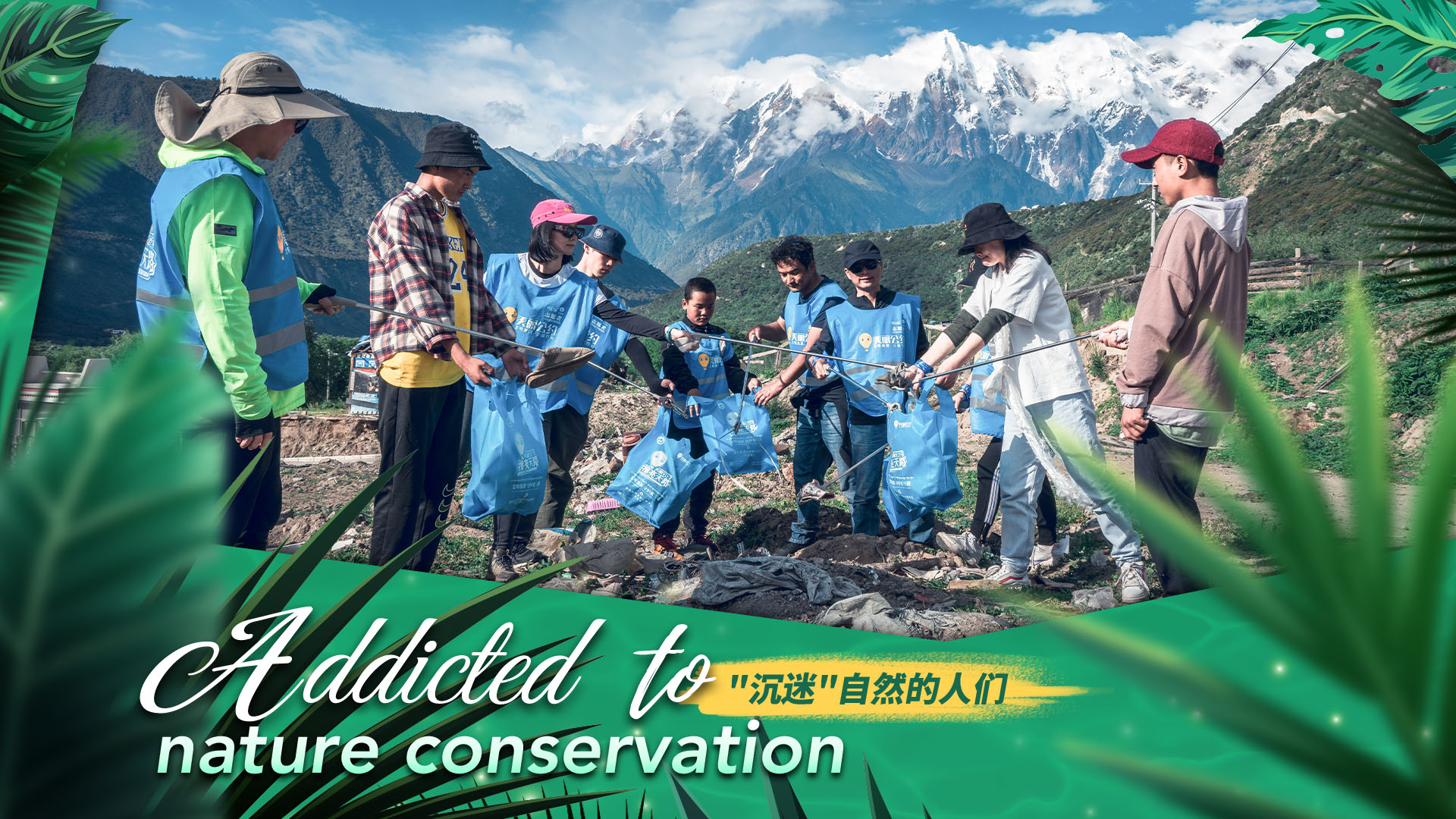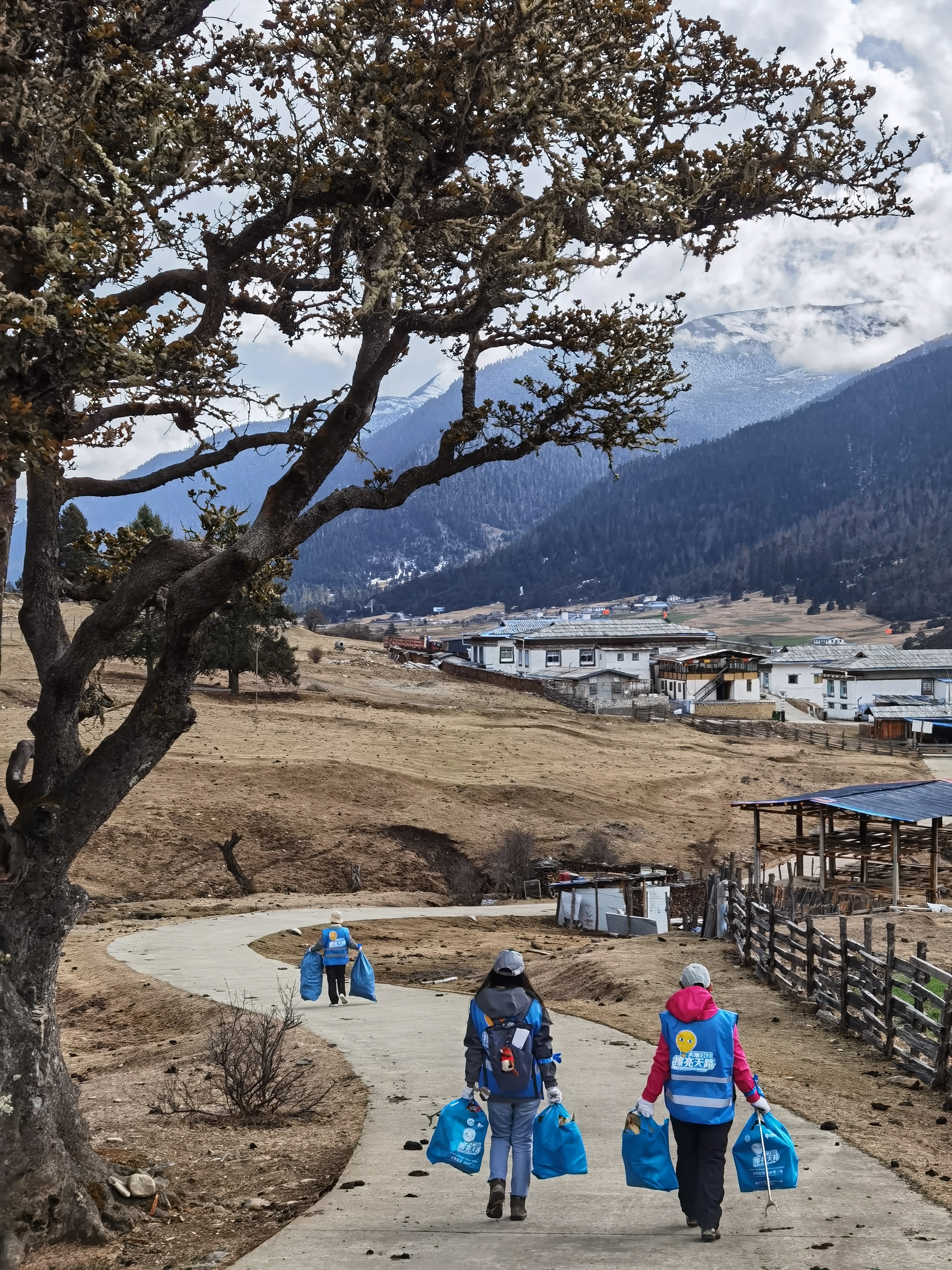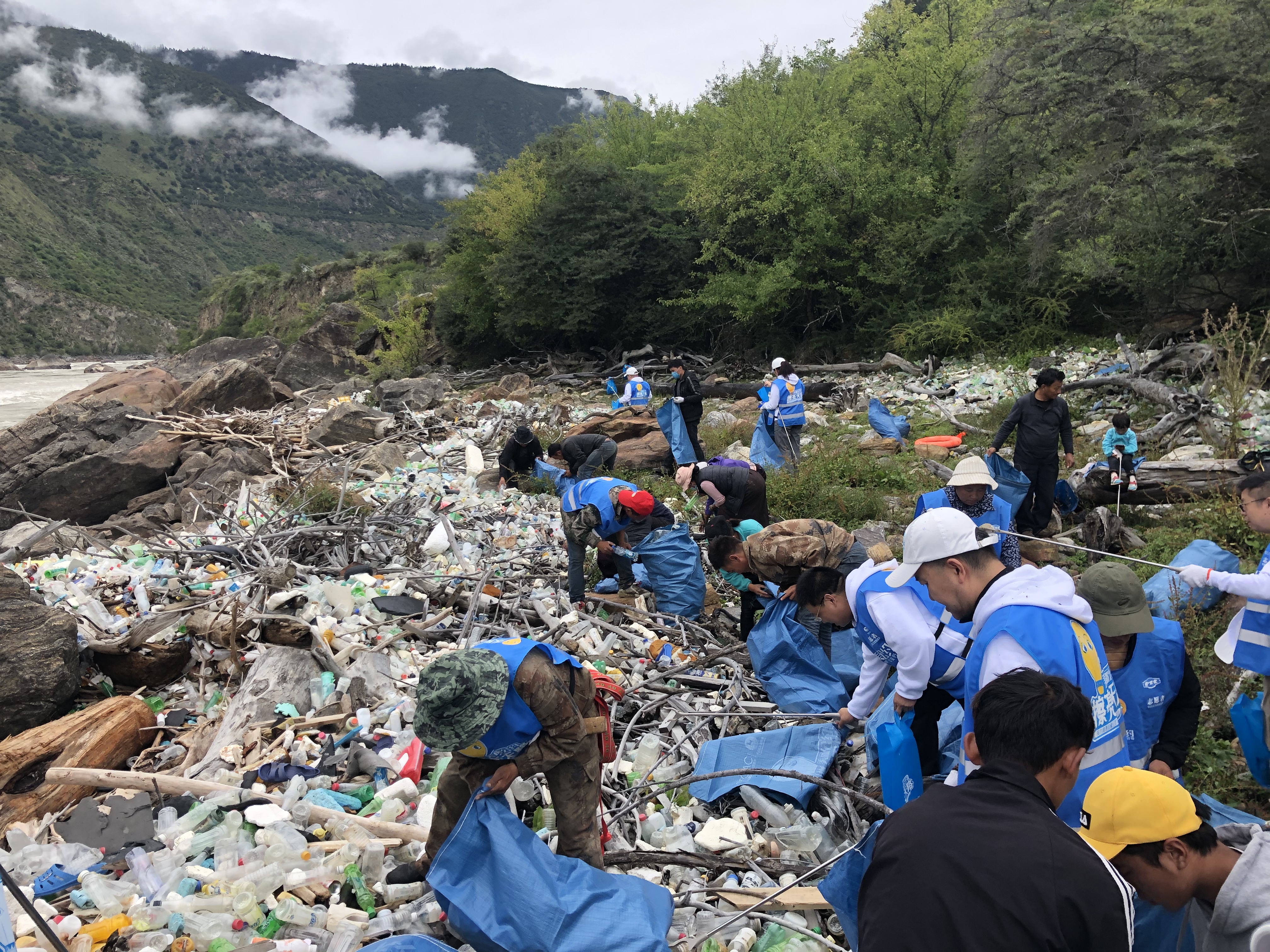00:37

Among the 14 peaks above 8,000 meters in the world, there are five on the Qinghai-Tibet Plateau in China. On the Tibetan plateau, there is a significant difference in temperature between day and night. Despite this harsh environment, a group of people regularly traverse through the snowy mountains, lakes and pastures. For the past seven years, they have been doing one thing: picking up rubbish.
They are the "Beautiful Travel," a charity organization dedicated to the conservation of nature. Since 2015, Beautiful Travel has launched several campaigns to recycle more than 45 tons of discarded plastic bottles. If you stack these plastic bottles up, they would be about 25 times as high as the Mount Qomolangma.

Take Meri Snow Mountain as an example; in the plateau area, garbage disposal is extremely difficult. Although the cleaning department regularly collects residents' household garbage, it is difficult for garbage transporters to drive in the high altitude during rainy and snowy weather, when road closures are common.
In 2014, Shi Ning, the initiator of Beautiful Travel, traveled alone from Dali to Lhasa, where he saw a lot of garbage along the road. Later, Ning and his two companions discussed possible solutions to environmental problems in Tibetan areas. In 2015, the three launched a number of activities, starting from picking up trash in Tibetan areas, cleaning up trash along the highway into Tibet, as well as promoting for the whole country, calling on tourists and local residents into Tibet to stop littering.
They expanded the campaign to the route along the road into Tibet, from Dali to Ranwu Lake in Tibet. The campaign lasted about one month, covering 1,500 kilometers, and included removal of more than 2,000 bags of garbage along the way. It involved about 30,000 tourists.

They also established rubbish pickup sites in conjunction with the local authorities. Volunteers go to villages, towns and mountainous areas to collect garbage; when the garbage is piled up to 500 kg, vehicles are sent to collect it.
Volunteers will sort out 20 percent recyclable garbage and recycle it according to the price in Lhasa. The remaining 80 percent of non-recyclable garbage will be handed over by volunteers and staffs to the municipal waste removal department for compression, shredding and further recycling.
The T-shirts worn by the volunteers were made using recycled materials from this trash. Blue, representing the blue sky and the planet, is the specially chosen representative color of the Beautiful Travel, said Ning. "It's like planting the seeds of civilization in people's hearts, and I believe that one day, these seeds will blossom, forming a beautiful landscape," he added.
About 'Addicted to nature conservation'
Biodiversity, climate change and environment topics are not new, but more and more people have devoted themselves to nature conservation. Some of them are rangers, guarding the forests and protecting local biodiversity; some of them work on desertification control; generations of them spent their lives changing the desert into a green land; some are scientists and researchers, they use the latest knowledge and methods to guide others for a shared future. From April 29 to May 4, CGTN Nature presents stories of those addicted to nature conservation.
For more:
What is it like to be a whale scientist?
The unstoppable force in the battle against desertification in China
Generations that brought green to the seventh biggest desert in China
(All images provided by Beautiful Travel)
(If you want to contribute and have specific expertise, please contact us at nature@cgtn.com.)